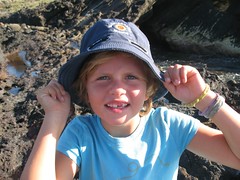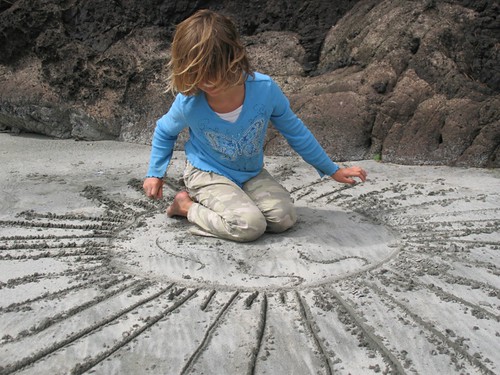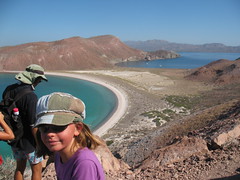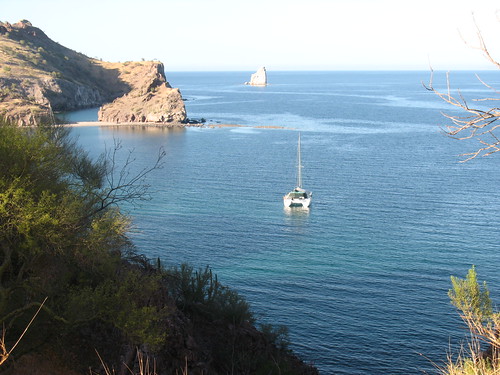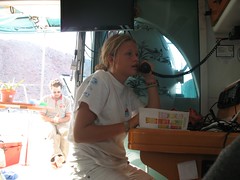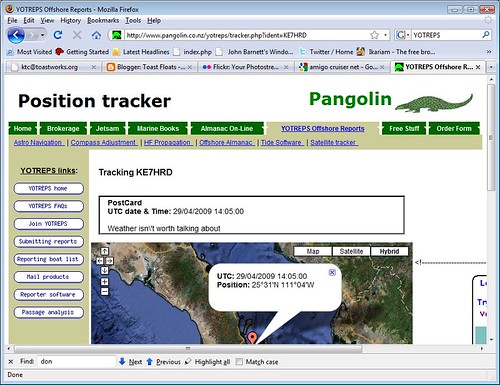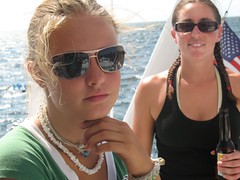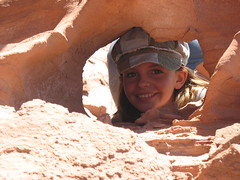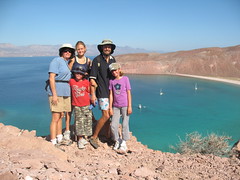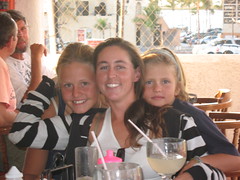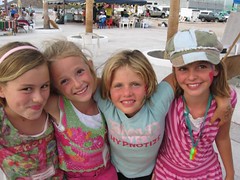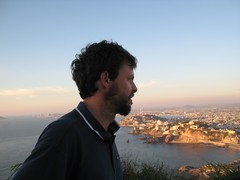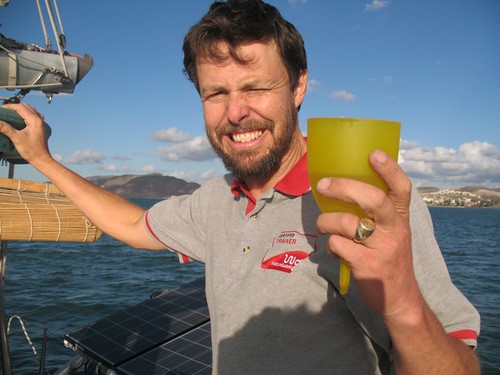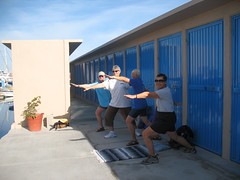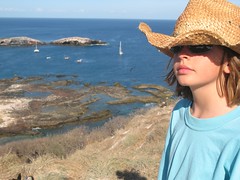When I spoke of this season's catitude, I think I depressed a few readers with my persistent combination of smugness and defensiveness about living on a multihull. Even at the time, I made clear that there are a lot of ways you can split the cruising community down demographic and philosophical lines. All are more or less “true” in the sense that the lines exist, the differences are real, and you can see the social dynamics play themselves out on a daily basis. However, it turns out that multihull versus monohull is not even one of the big players in the cruiser schism game.
Almost as profound as the division between sticks (sail) and smokers (power) is the gulf between those who spend the majority of their time at anchor and those who live on the dock. At times, this gulf is nigh on uncrossable since it goes to the heart of cruising philosophy.
Now, obviously there is no way a cruiser can completely avoid periodically throwing out the ground tackle and living on the hook. So we all invest in good ground tackle and learn how to use it. We endlessly sit over drinks and debate the merits of Rockna versus Bruce, scope ratios, storm tactics, bridling and holding ground. However, for all that effort and discussion, once you get out in the cruising grounds, the fleet tends to dissolve into two basic camps: those that live on the dock (dockers) and those that live on the hook (hookers).
Dockers prefer the convenience, comfort, and beauty of the marina. Dockers are clean: their boats are clean, the cloths are clean, their dishes are clean. Dockers know how to negotiate with the local harbor master to get the best weekly and monthly rates. They can tell you where to get Puddle Jumper discounts (12 bottles of dark rum for about $35USD is only my most favorite example). When they pull into a town, they spend weeks or months learning everything there is to know, participating in charitable events, going to all the amateur and professional musical nights, identifying each and every quality tienda, mercada, and restaurant. Their experience of any single city is deep, their knowledge wide, and their enjoyment manifest.
Hookers, on the other hand, prefer the nomadic, camping life of the hook. Hookers are filthy: their boats are salty, their clothes often stand up and try to walk away. Hookers know how to tuck into even the smallest bight to get protection from wind driven fetch and Pacific swell. They know how to negotiate with pangeuras to have fuel, laundry, beer, and fish delivered to the boat. They visit remote villages, natural parks, off shore islands, and open surfing road steads. When they come into a big town, they frequently stay only long enough to take on fuel, food, and clean clothes before letting the wind blow them back to quieter, more remote locations.
Now, nothing is absolute. Every once in awhile, a hooker spends a week on a dock. Even then, their lifestyle choice manifests itself. Hookers in dock work very hard; Docking is an expensive opportunity to complete maintenance that simply can not be accomplished without quick access to hardware stores, water, or other facilities. Their experience of the local town is dominated bysail makers, machine shops, or fabric stores. Of course, they'll have some fun, take in a show, go to a potluck in the marina lobby, but these activities are only at the end of a long, hard day with the expectation of more work on the dawn. Their conversations with one another focus on solving their maintenance problems and getting out from under the expense of marina life as quickly as possible. Hookers are often on extremely limited budgets, and even in the dock, they constantly trade methods to save money.
Periodically, a docker spends a week on the hook. Dockers on the hook seem to view their time out as opportunity to vacation from their vacation. It's not unusual to see them pull into an anchorage and never drop their dinghy. They enjoy sundowners on the deck, gently complain to one another about the rolliness of the anchorage, and struggle with deploying flopper stoppers. They take a million pictures, and are generous with their time, food, and booze to the hookers already in situ. Dockers anchor more tentatively, and they seek the recommendations and advice of hookers for where to go, what to do, and which palapas to visit. Even on the hook, dockers are clean, have the freshest and tastiest finger foods, and serve drinks with ice.
When we set out, Don Quixote anticipated being one of that unusual breed of boats which lives a hybrid, hooker-docker lifestyle. An informal survey suggests that this is a common cruiser dream, assuming the cruising life will be similar to long vacations on the boat. Most thought they would divide their time roughly evenly between hook and dock.
But that's not really what happens. In practice, you find your life sliding into a docker or hooker pattern. Docking is so much cheaper here than in the States, that if you really like the dock lifestyle, you should be able to afford it. It's a wonderful way to live, to raise children, to enjoy and participate intimately with the Mexican and ex-expatriate communities along the water front. Hooking, however, also has an unexpectedly seductive appeal. A hooker can reduce a family's living expenses to less than $USD1000 per month, and the longer you live on the hook, the easier it becomes, the more liberating the pull away from land based concerns.
I apologize if I have failed to be objective in this article; we are hookers. Even last summer in the Northwest, our time between dock visits grew steadily longer, but now here in Mexico, we basically do not dock at all. From the time we said goodbye to Victory Cat in December to the time we pulled next to Totem in March, our fenders never came out. After a week of intense scrubbing and maintenance, we abandoned the pull of the La Cruz marina in favor of bobbing around in the La Paz Magote or swinging on the hook out in the southern Baja islands. We empathize with and admire those who drop the lines in late October and do not pull again into a marina until it's time to put the boat to bed for the hurricane season the following July.
The hardships of hooking are well repaid in the economic savings and the sense of empowerment and freedom providing by life outside of the box. On the other hand, the dock box is a lot cleaner. And you can't really overestimate the pull of ice cubes in the rum punch.

